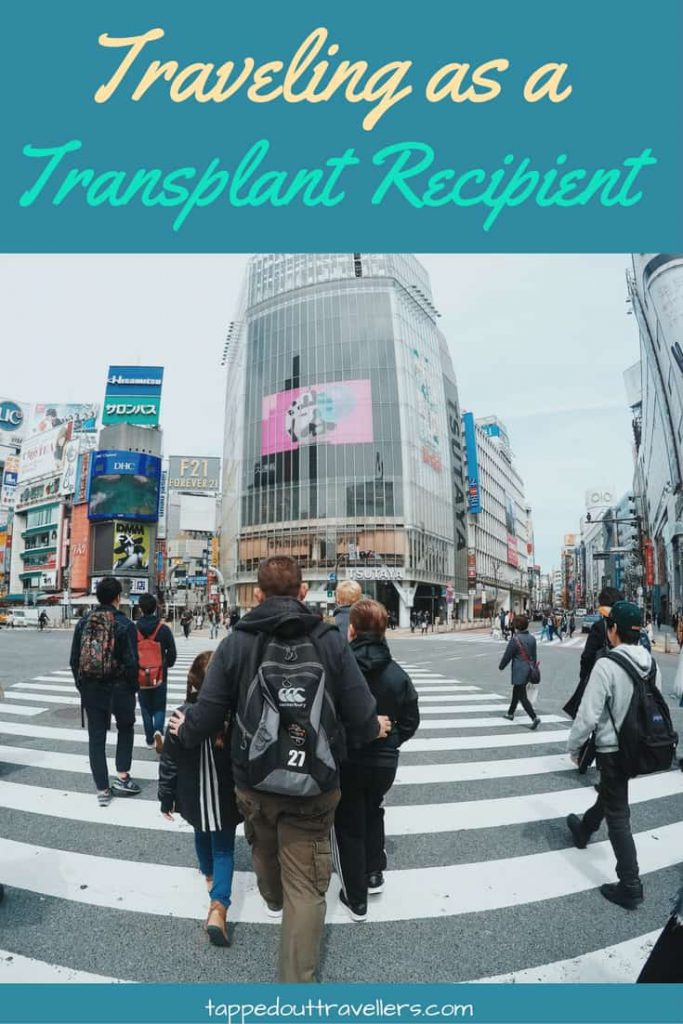Last Updated: July 14, 2023

Travelling as a Transplant Recipient has its own set of complications. Learn how this family manages the risks in order to reap the rewards.
Living immuno-compromised – Leah Smileski from Kid Bucket List
Introduction
The story of the Kid Bucket List is a complex one although we aren’t usually transparent about how it really came about and why we, as a family, were so keen to do so much traveling and exploring before the kids were even teens.
You see, just before I met T, he had a life-changing moment. A few weeks in a coma due to illness with the fall out likely to be brain injury or death, fortunately the outcome was neither. A transplant later, and a life of immuno-suppressants thereafter didn’t seem to be a bad payoff for the ability to live, to marry, and to have kids.
But as transplant recipients can attest, good health isn’t always a given, so whilst we have it we plan to utilize every moment we can to make our lives full of rich experiences.
What the Bucket List Can’t Include
Traveling with a transplant does raise some complex planning needs. There are quite a number of countries that our specialist has recommended we don’t travel to, and as you know that does mean no insurance for those countries so we don’t go. Sometimes this can make me dwell on the what if but I shake that off and reframe.
As a budding family travel blogger, this has meant saying no to some amazing family and sponsored opportunities as the risk is just too great. Some vaccinations are too risky too, so if they are needed we are unlikely to go to those destinations either.
Scuba diving, motorbike riding, and anything with a risk of falling is largely off the list as a whole family activity, so sometimes we do separate the activities so either Sunshine or Striker can participate.

The Planning Complexity
The planning leading up to an overseas jaunt can be quite complex. Travel insurance for transplant patients can be a little difficult, but we are lucky that our health has been stable for the last couple of years (read: no unexpected emergency visits) so our favorite insurer has been happy to provide coverage. When it comes to budgeting for an overseas trip, this does mean the allocation of at least $1000 for insurance.
My next concern is medication. I’m the one who gets anxious about this after all – the tablets we take with us could literally mean the difference between life and death. I always check the destination country’s medication prohibition to ensure we can take what we need over the border. I then figure out whether we need to take certification from our specialist, and if so, what the letter should say.
Being the planner that I am, I also work out where the hospitals are in each city we are going to just in case. Fortunately, whilst we have visited most major hospitals near our accommodation on interstate visits, this has not eventuated on overseas trips (can you cross your fingers for us that it never will be needed!).
The Kid Bucket List
Chronic illness can often prevent you from doing a lot of the things you really want to do. It can become a burden and can slowly eat away at your dreams. But we are hell-bent on that NOT happening to us. I like to think of us as serial optimists!
The Kid Bucket List, whilst originally being a conduit of information for my family, soon evolved into a list of what we could do together; a detail of aspirations of dreams achieved during snatches of good health. I think of it as a silent cheer squad on the sidelines, keeping us moving forward with a glass-half-full attitude.
And because we are much more than a family managing a chronic health condition, it isn’t something that we broadcast widely and mentions again and again. We are not going to let it stop us from our adventure, after all.

About the Author
Leah believes A Kid Bucket List makes you think about what you want to do with your children and helps you to find adventures that you don’t expect. Traveling with kids can be fun and rewarding.
Your Thoughts...
Please share your thoughts in the comments or reach out on social media...We would love to hear from you.
Additional Resources: 10 tips for planning a trip as a transplant recipient

